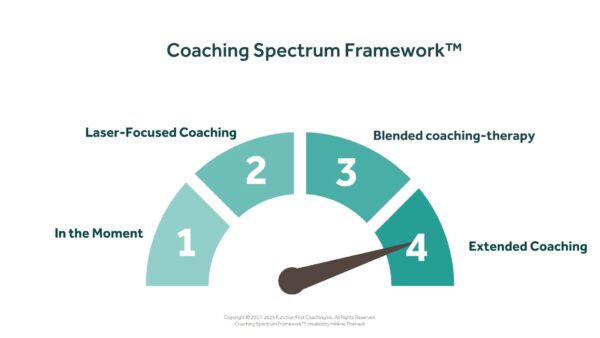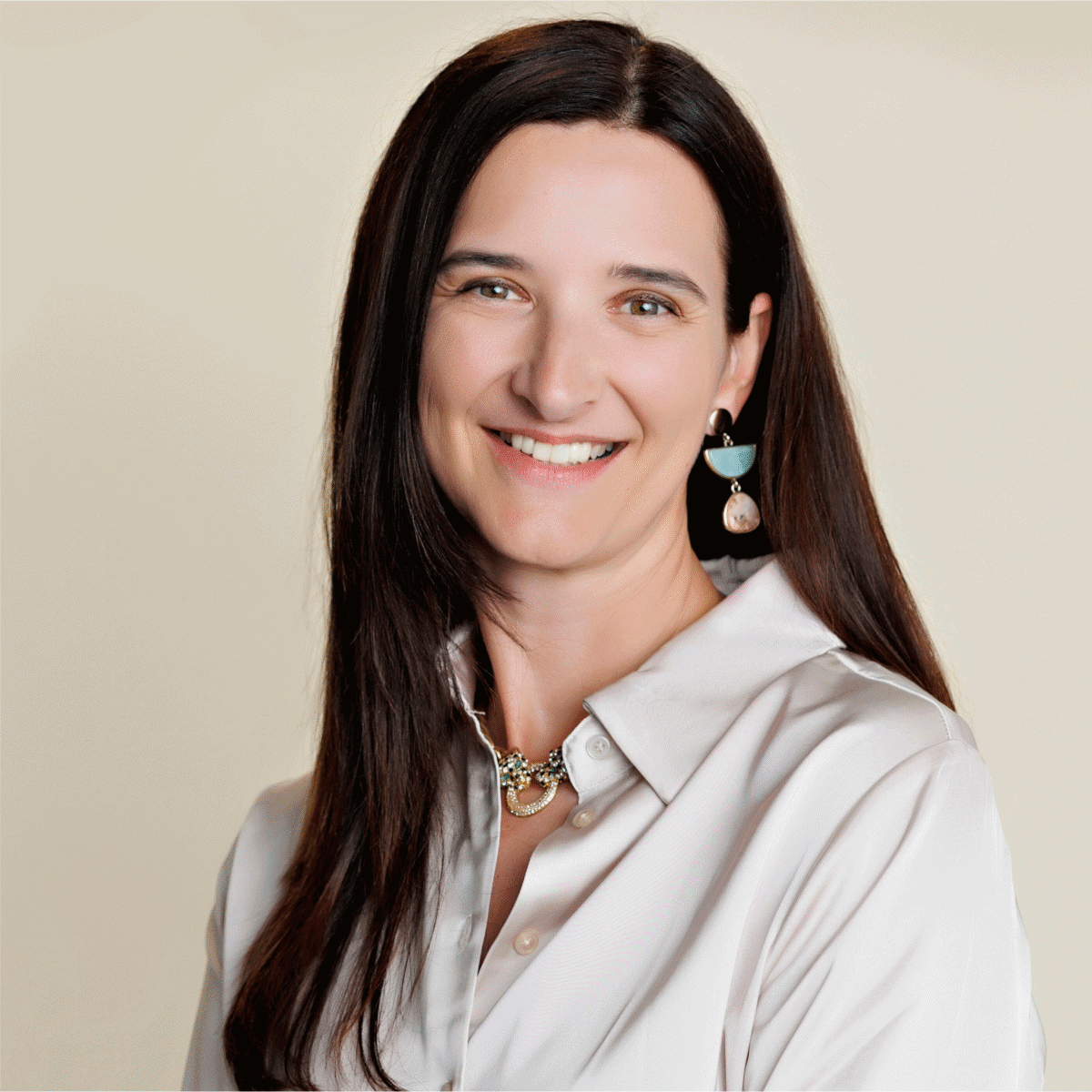When I discovered coaching 14 years into my career as an occupational therapist, I immediately saw its potential to transform my work. While supporting clients with conditions ranging from concussion and severe depression to persistent pain, I began incorporating a coach approach into my practice. As my coaching education deepened — from ACC to PCC to MCC — I moved beyond In the Moment Coaching (informal coaching) and started to explore a broader coaching spectrum, from Laser-Focused Coaching to Blended Coaching to Extended Coaching.
I created the Coaching Spectrum FrameworkTM to help clinicians integrate key coaching competencies into their practice: improving therapeutic alliances, enhancing patient engagement, and ultimately boosting patient satisfaction.
However, this model is not exclusive to healthcare — coaches in leadership, life, career, business, and relationships can also benefit from understanding and applying these approaches. How might exploring the Coaching Spectrum Framework™ help you refine your coaching practice?
The Coaching Spectrum Framework™: Four Approaches to Consider

Coaching can range from brief, informal interventions to structured, long-term engagements. Understanding these four coaching styles can help any coach adapt their approach based on context, client needs, and available time.
In the Moment Coaching (Informal Coaching — Short and Responsive)
This quick, responsive approach is embedded in real-time conversations. Clients may not even recognize that coaching techniques are being used.
Key Features:
- Applied on the spot within everyday interactions.
- More directive, leveraging brief but impactful coaching.
- Encourages reflection and insight in the moment.
Example: A leader uses a powerful question during a quick check-in, prompting insight and next steps without a formal coaching session.
Laser-Focused Coaching (A Bridge Between Informal and Formal Coaching — Targeted and Efficient)
This structured yet brief approach (10-15 minutes) explicitly acknowledges coaching while keeping it highly efficient. It is valuable across coaching specialties when time is limited.
Key Features:
- Short, structured, and outcome-oriented.
- Focuses on a single issue or challenge within a short timeframe.
- Facilitates meaningful shifts without requiring extended sessions.
Example: A career coach has a 15-minute call with a client. They establish a focus, ask powerful questions, and co-create a brief action plan.
Blended Coaching (Integrated Coaching Within Another Discipline)
This approach recognizes that coaching can complement other professional practices — whether in healthcare, executive leadership, or business consulting. Coaching clarifies focus and goals before a client transitions into specialized interventions.
Key Features:
- Starts with a brief coaching conversation to define session objectives.
- Coaching techniques surface early, then the client engages in another domain (e.g., therapy with a licensed provider, training, skill-building, strategy development).
- Concludes with a reflection to reinforce insights and application.
Example: A leadership coach partners with an executive to clarify priorities, then refers them to skill-building exercises or other experts as needed, before ending with a reflection on insights gained.
Extended Coaching (Formal Coaching — Structured and Scheduled Sessions)
On the far end of the spectrum, extended coaching involves structured, ongoing coaching over several weeks, enabling deeper transformation.
Key Features:
- Scheduled sessions (30-60 minutes) over an extended period (e.g., six to eight weeks).
- Supports long-term growth and sustainable change.
- Provides a framework for deeper exploration and goal refinement.
Example: A business coach and entrepreneur commit to six coaching sessions to refine business strategy and mindset shifts. Sessions remain structured yet adaptable to evolving goals.
Applying the Coaching Spectrum to Your Practice
Regardless of the type of coaching you specialize in, considering where your coaching falls on this spectrum can elevate your impact. Are you primarily using In the Moment Coaching in brief interactions? Could Laser-Focused Coaching offer a structured yet efficient alternative? If you integrate coaching with other expertise, how does Blended Coaching shape your client interactions? And when deep transformation is needed, does Extended Coaching provide the right structure?
By recognizing and leveraging this spectrum, coaches in every niche — from leadership and career coaching to business and wellness — can maximize their effectiveness. How might expanding your awareness of these coaching approaches support you and your clients?
A Flexible Framework for Lasting Impact
The Coaching Spectrum Framework™ is a valuable lens for any coach looking to refine their practice. As coaching continues to evolve, having flexible, adaptable approaches allows us to meet clients where they are and create meaningful, lasting impact.
Disclaimer
The views and opinions expressed in guest posts featured on this blog are those of the author and do not necessarily reflect the opinions and views of the International Coach Federation (ICF). The publication of a guest post on the ICF Blog does not equate to an ICF endorsement or guarantee of the products or services provided by the author.
Additionally, for the purpose of full disclosure and as a disclaimer of liability, this content was possibly generated using the assistance of an AI program. Its contents, either in whole or in part, have been reviewed and revised by a human. Nevertheless, the reader/user is responsible for verifying the information presented and should not rely upon this article or post as providing any specific professional advice or counsel. Its contents are provided “as is,” and ICF makes no representations or warranties as to its accuracy or completeness and to the fullest extent permitted by applicable law specifically disclaims any and all liability for any damages or injuries resulting from use of or reliance thereupon.
Authors
Post Type
Blog
Audience Type
Experienced Coaches, External Coaches, New Coaches, Professional Coaches
Topic
Business Development
Related Posts
How to Use LinkedIn to Establish Thought Leadership
LinkedIn offers coaches a powerful opportunity to attract new clients, establish thought leadership, and grow…
The Executive Coaching Blueprint: Positioning, Pricing, and Performance
Transitioning from corporate to coach can feel like uncharted territory for many…







